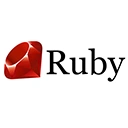Introduction
Building a blogging platform is a substantial project that involves database management, user authentication, content creation, and more. Ruby, with the Ruby on Rails framework, is a great choice for developing such platforms. In this guide, we'll explore the fundamentals of creating a blogging platform with Ruby.
Prerequisites
Before you start, make sure you have the following prerequisites:
- Basic knowledge of the Ruby programming language
- Ruby on Rails installed on your computer
- A code editor (e.g., Visual Studio Code, Sublime Text)
- Basic understanding of HTML, CSS, and JavaScript
Step 1: Create a New Ruby on Rails Project
Begin by creating a new Ruby on Rails project for your blogging platform:
# Create a new Rails project
rails new blogging_platform
Step 2: Define Data Models
Define your data models to represent blog posts, user accounts, comments, and any other necessary data. Here's an example of creating a blog post model:
# Generate a blog post model
rails generate model BlogPost title:string body:text
Step 3: Implement User Authentication
Use the Devise gem or another authentication solution to manage user registration, login, and profile management. Install Devise and follow its documentation to set up user authentication:
# Add Devise to your Gemfile
gem 'devise'
# Install Devise
bundle install
rails generate devise:install
rails generate devise User
Step 4: Create User Interfaces
Design and create user interfaces for blog posts, user profiles, and admin panels. Use HTML, CSS, and JavaScript to make your platform visually appealing and user-friendly.
Step 5: Implement Blogging Features
Implement blogging features like creating, editing, and deleting blog posts, commenting on posts, categorizing posts, and enabling user profiles.
Step 6: Deploy Your Blogging Platform
Once you've developed and tested your blogging platform locally, deploy it to a web hosting service or server. Consider using platforms like Heroku for easy deployment.
Conclusion
Developing a blogging platform with Ruby is a substantial project that requires a solid understanding of web development, user authentication, and database management. Ruby on Rails provides an excellent framework for building such platforms. As you become more proficient, you can expand your platform with additional features and fine-tune the user experience.
Happy coding, and enjoy building your blogging platform!

